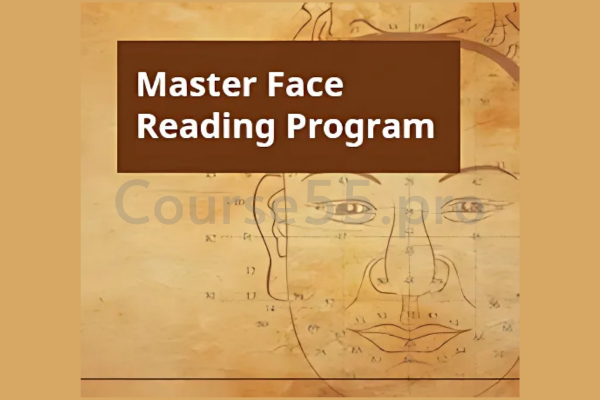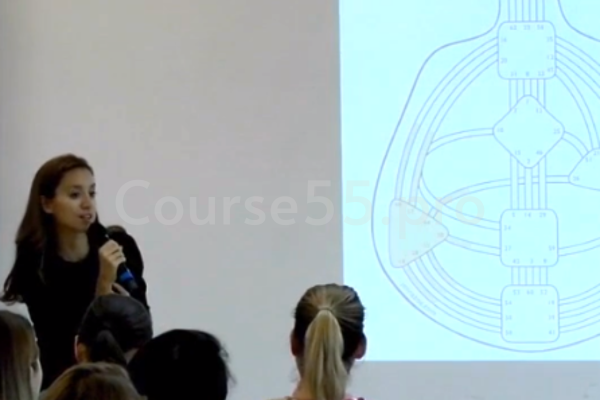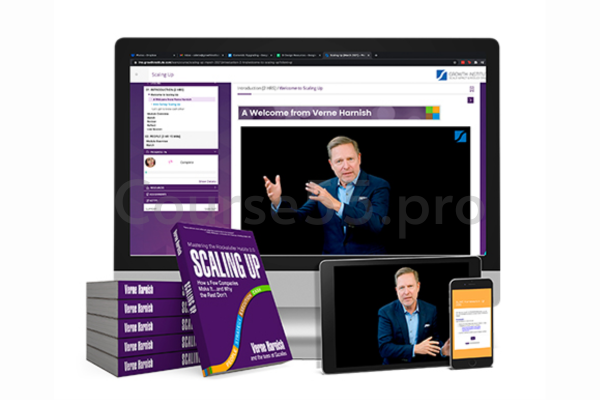Pure Selling – Master The Art Of Sales By James Macneil
$997.00 Original price was: $997.00.$139.00Current price is: $139.00.
Download Pure Selling – Master The Art Of Sales By James Macneil, check content proof here:

James MacNeil’s book Pure Selling: Master the Art of Sales
Every ambitious salesperson must grasp the subtleties of sales strategies in a world where the dynamics of commerce are always changing. James MacNeil’s book “Pure Selling: Master the Art of Sales” answers this exact need. MacNeil explores the interconnected nature of selling in his perceptive book, stressing a well-rounded strategy in which the science and art of effective sales techniques are complementary. He makes a distinction between “facilitative selling” and “pure selling,” providing a road map for negotiating the intricate world of contemporary sales techniques.
More than just a manual for tactics, this book champions the significance of emotional intelligence and adept communication essential tools that enable sales professionals to not just close deals but forge lasting relationships with clients. Through compelling narrative and practical wisdom drawn from years of experience, MacNeil inspires readers to rethink their approach and cultivate genuine connections in the world of sales.
Overview of Pure Selling
“Pure Selling” by James MacNeil captures the spirit of sales that goes beyond simple transactions. It uses the example of a talented artist who creates with accuracy, originality, and purpose. Successful selling requires a combination of skill and intuition, just like creating a masterpiece. According to MacNeil, there is a fundamental truth at the core of selling: knowing the emotional aspects of the customer experience is just as important as being an expert in the product.
The Two Facets of Marketing
Sales tactics have historically tended to be more emotive or more rational. This gap is filled by MacNeil’s idea of “pure selling,” which contends that both components are necessary for successful sales. Pure selling focuses on a deep understanding of customer needs and emotions, while facilitative selling often revolves around guiding the customer toward a decision with less emotional engagement. This paradigm shift redefines how sales professionals should view their roles; instead of merely pushing products, they should aim to facilitate fulfilling experiences for their clients.
MacNeil makes a strong case for incorporating emotional intelligence into the sales process by contrasting these methods. In order to improve connection and trust, salespeople are urged to use their empathy. Take, for example, a situation in which a salesman meets a reluctant client. An effective strategy would entail actively listening and addressing underlying concerns rather than concentrating only on product features. This would result in a more meaningful conversation.
The Value of Listening Actively
Active listening is a fundamental component of MacNeil’s sales concept, a talent that is frequently disregarded in the hectic world of business. In order to completely understand the goals of the client, active listening goes beyond simply being present during a conversation. It involves taking in and analyzing both verbal and non-verbal clues. MacNeil emphasizes that this technique not only improves sales outcomes but also strengthens the bond ***ween the salesperson and the customer.
Techniques for Enhancing Listening Skills
To cultivate effective listening skills, MacNeil introduces several practical methods:
- Reflective Listening: Summarizing what the customer has said to confirm understanding, which shows the customer that their thoughts are valued.
- Questioning for Clarification: Utilizing open-ended questions encourages a deeper discourse and allows the salesperson to uncover the true needs of the client.
- Acknowledging Emotions: Recognizing and validating emotions can lead to stronger rapport, demonstrating that the salesperson is involved in the customer’s journey.
By employing these techniques, sales professionals can significantly enhance their interactions. This approach not only helps in deciphering customer needs but also fosters an environment of trust, where clients feel safe to express their concerns and desires.
The Art of Persuasion through Verbal Aikido
Using ideas from the Japanese martial art of aikido, which is renowned for emphasizing harmony and conflict resolution, MacNeil presents the fascinating idea of verbal aikido. Essentially, verbal aikido trains salesmen to reroute the conversation toward more positive results and sidestep any potential client opposition. In the context of communication, this metaphorical technique provides helpful techniques for handling objections.
Fundamentals of Verbal Aikido
The philosophy of verbal aikido relies on several key principles:
- Embrace Resistance: Instead of confronting objections, acknowledge them to create a sense of understanding.
- Lead the Conversation: Gently guide the discussion with empathy, allowing the customer to feel involved in decision-making.
- Create Win-Win Scenarios: Focus on mutual benefits to facilitate a positive outcome not just for the salesperson, but for the client as well.
Through this methodology, salespeople can cultivate persuasive effectiveness, often inviting clients into a collaborative space rather than a confrontational one. As a practical example, a scenario could unfold where a client expresses dissatisfaction with pricing. Using verbal aikido, a salesperson might validate this concern and then present alternative solutions that meet the client’s budget, demonstrating adaptability and understanding.
Linking Strategy and Emotions
In MacNeil’s teachings, the connection between strategy and emotions is crucial. In sales, when every conversation involves a careful balancing act between comprehension, persuasion, and transaction, an understanding of human psychology becomes a vital advantage. In order to anticipate how clients will react to different scenarios and pitches, he advises sales professionals to become well-versed in human behavior.
How to Develop Emotional Intelligence
MacNeil highlights the importance of honing emotional intelligence (EI), which encompasses self-awareness, self-regulation, and empathy:
- Self-Awareness: Recognizing one’s own emotional triggers and biases allows for a more authentic interaction with clients.
- Self-Regulation: Maintaining composure and professionalism, even in challenging situations, facilitates a positive customer experience.
- Empathy: Understanding the emotions of clients leads to deeper connections and can often turn sceptics into advocates.
To illustrate these concepts, consider a seasoned salesperson who encounters a challenging client filled with apprehensions. By applying emotional intelligence, the salesperson can navigate the interaction skillfully, adapting their approach to resonate with the client’s feelings and ultimately achieve a successful outcome.
Case Studies and Real-World Applications
Throughout “Pure Selling,” MacNeil draws upon over 20 years of experience in training and coaching sales professionals. This extensive background provides a wealth of practical case studies that reinforce his philosophies and approaches.
Field Success Stories
An active listening training program was developed by a tech sales organization. Within six months, they saw a 25% improvement in customer satisfaction ratings and a 40% increase in product adoption rates.
Verbal aikido techniques were used in sales training by a retail chain. The staff then reported a sharp 50% drop in client complaints and a 30% increase in upselling during busy times.
These illustrations highlight how MacNeil’s lessons may change an organization and how successfully applying them can influence its sales results.
In conclusion
James MacNeil offers a comprehensive synthesis of theory and practice in “Pure Selling: Master the Art of Sales,” which is a lifeline for both inexperienced and seasoned sales professionals. By stressing the value of emotional intelligence, active listening, and creative communication techniques like verbal aikido, MacNeil creates a framework that anyone can use to improve their sales abilities. His advocacy of two facets of selling encourages a change in strategy from transactional to authentic connection.
Adopting these ideas can improve individual performance as well as transform a company’s sales approach, opening the door for deep connections with customers that go beyond the actual sale. As you embark on your sales journey, remember that mastery lies in the balance of art and science, where empathy meets strategy to create not just closures, but lasting partnerships.

Frequently Asked Questions:
Business Model Innovation:
Embrace the concept of a legitimate business! Our strategy revolves around organizing group buys where participants collectively share the costs. The pooled funds are used to purchase popular courses, which we then offer to individuals with limited financial resources. While the authors of these courses might have concerns, our clients appreciate the affordability and accessibility we provide.
The Legal Landscape:
The legality of our activities is a gray area. Although we don’t have explicit permission from the course authors to resell the material, there’s a technical nuance involved. The course authors did not outline specific restrictions on resale when the courses were purchased. This legal nuance presents both an opportunity for us and a benefit for those seeking affordable access.
Quality Assurance: Addressing the Core Issue
When it comes to quality, purchasing a course directly from the sale page ensures that all materials and resources are identical to those obtained through traditional channels.
However, we set ourselves apart by offering more than just personal research and resale. It’s important to understand that we are not the official providers of these courses, which means that certain premium services are not included in our offering:
- There are no scheduled coaching calls or sessions with the author.
- Access to the author’s private Facebook group or web portal is not available.
- Membership in the author’s private forum is not included.
- There is no direct email support from the author or their team.
We operate independently with the aim of making courses more affordable by excluding the additional services offered through official channels. We greatly appreciate your understanding of our unique approach.
Be the first to review “Pure Selling – Master The Art Of Sales By James Macneil” Cancel reply
You must be logged in to post a review.

 Land Listings Unleashed By Cody Bjugan & David Hill - Vestright
Land Listings Unleashed By Cody Bjugan & David Hill - Vestright 
















Reviews
There are no reviews yet.